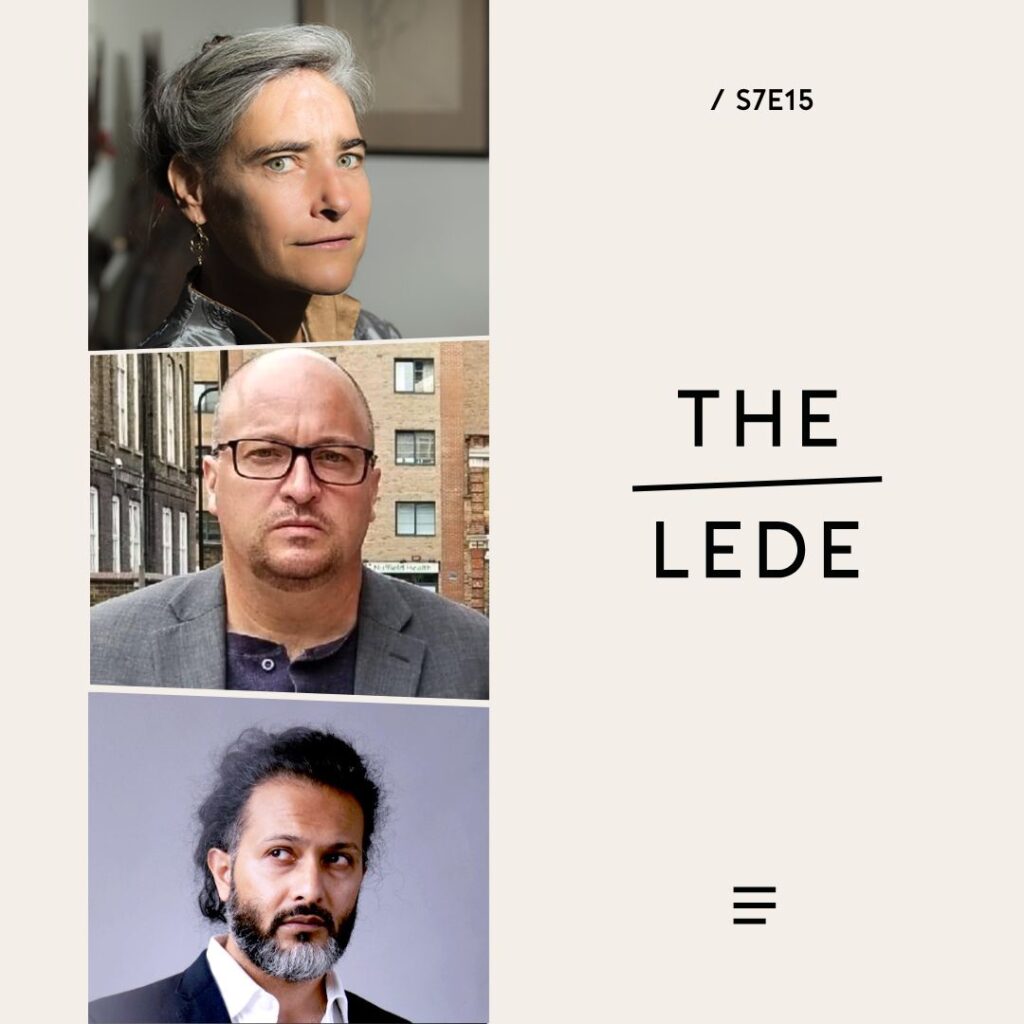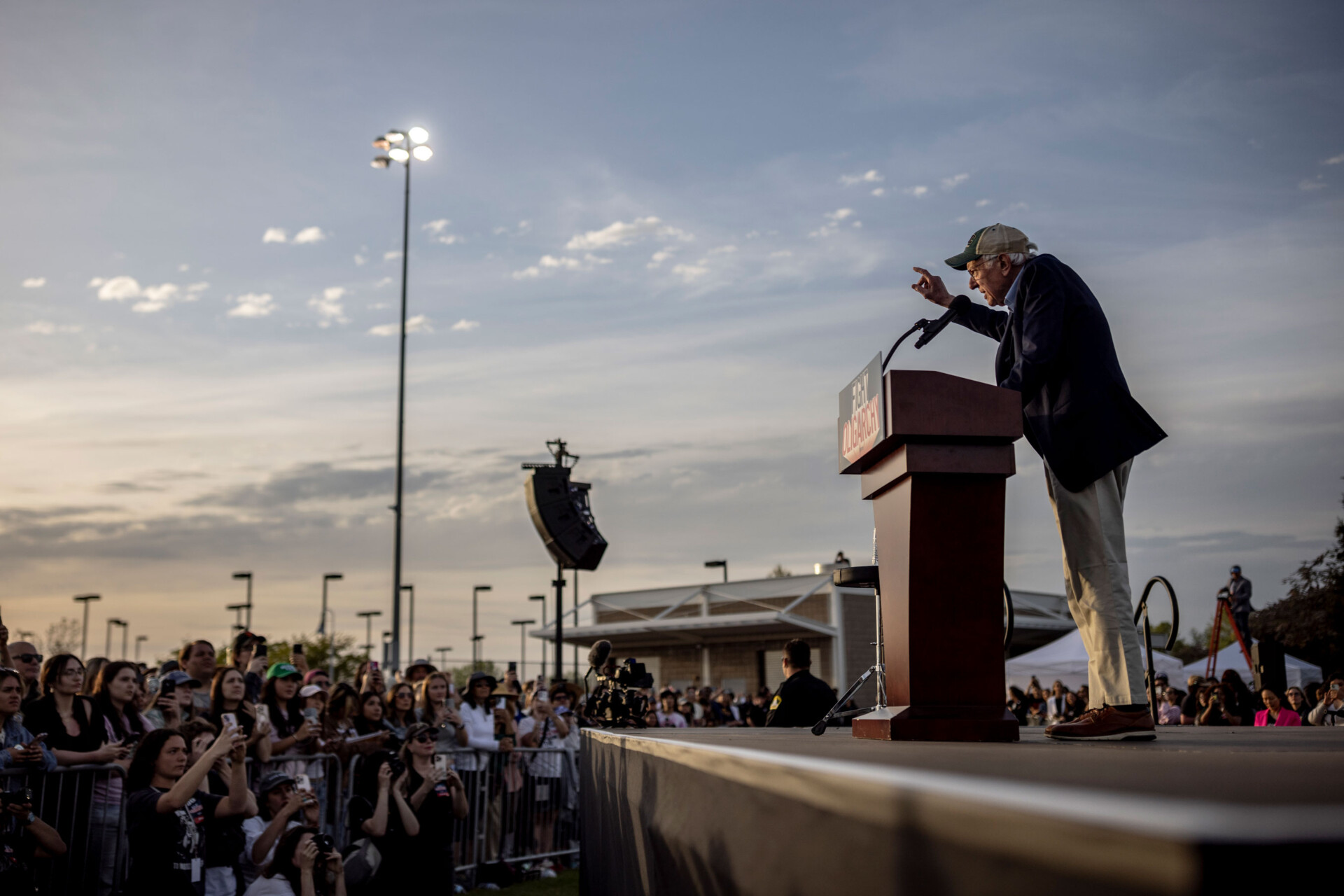Hosted by Faisal Al Yafai and Danny Postel
Featuring Sarah Chayes
Produced by Finbar Anderson
Listen to and follow The Lede
Apple Podcasts | Spotify | Podbean
The first 100 days of Donald Trump’s second presidency have come and gone. In these three months, Democrats have struggled to turn grassroots anger into a winning strategy; some appear to have gone into hibernation. As Sen. Bernie Sanders and Democratic Rep. Alexandria Ocasio-Cortez take to the streets in a nationwide campaign titled “Fighting Oligarchy,” the party faces a momentous test — turning protest into policy and then into political power.
This week’s episode of the podcast sees The Lede host Faisal Al Yafai and New Lines’ Politics Editor Danny Postel debate the meaning and utility of terms like oligarchy, used to describe Trump’s style of government by his political rivals.
“In Russia you have oligarchs, but in the U.S. we just have rich people.”

Postel also discusses the features of Trump’s accumulation of power with Sarah Chayes, who has, over the course of her career, been a special adviser to the Joint Chiefs of Staff, a senior associate at the Carnegie Endowment for International Peace and a reporter for NPR.
“Trump didn’t invent corruption,” Chayes says. Her book, “On Corruption in America,” tracks a return since the 1980s toward “a kind of kleptocratic system, such as existed in the Gilded Age, and that was true under leaderships of both parties,” she tells Postel.
Chayes is keen to stress that she intends no false equivalence between Trump’s actions and those of previous administrations. “However, I think it’s wrong to say that because the Trump administration is more egregious, then we get to turn a blind eye to practices that were entrenched under Democratic administrations,” she says.
“That slogan, ‘Drain the swamp,’ was super popular because people know that our politics are corrupt, people on the left and on the right,” argues Chayes. “When people despair of having any recourse or any way of airing and addressing their legitimate grievances within the civic system, they go to extremes. … Often they just want a wrecking ball.”
Continuing the discussion, Al Yafai suggests to Postel that, “America is not an oligarchy in the way that 1990s Russia was. The oligarchs do not have the power that the Russian oligarchs had.”
Postel concedes that Americans have struggled in the past to describe their own leaders as oligarchs. “Americans don’t really have hostility towards rich people in general, quite the contrary,” he says. “There’s a lot of envy and admiration towards what rich people have. That’s a lot of the Trump phenomenon.”
Nevertheless, he counters with the example of Elon Musk who, he argues, gave Trump “the biggest donation in political history and became in effect what was being called a co-president. … That’s when Musk began to be seen in America as an oligarch, rather than just a rich guy.”


